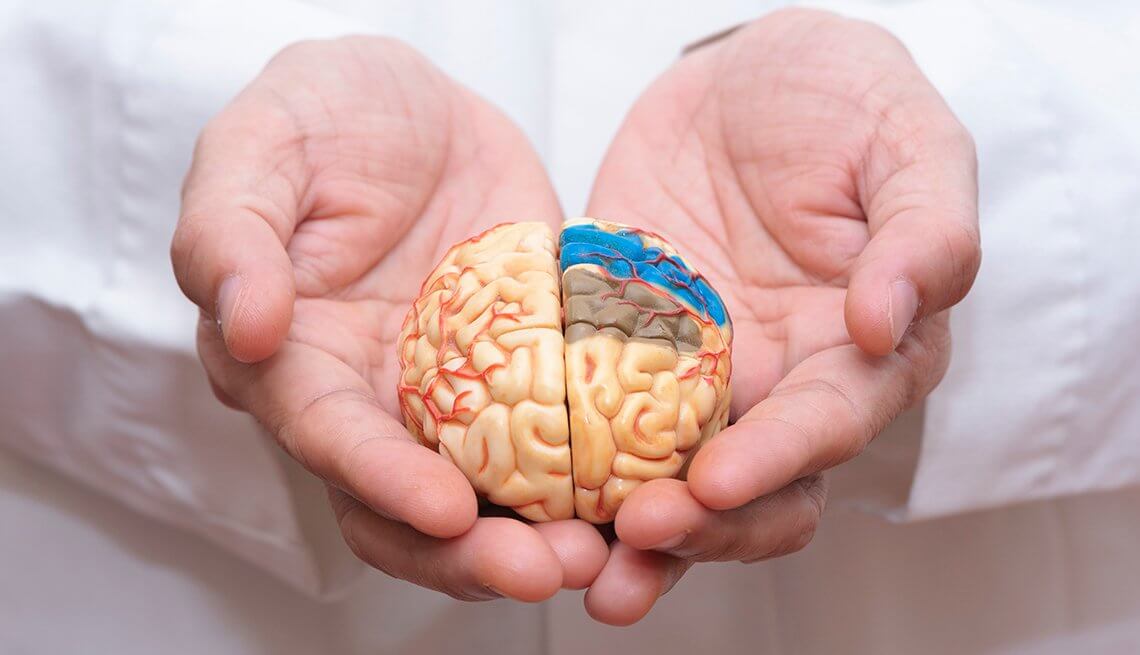How many Stages of Alzheimer’s are there?
Alzheimer’s disease has five distinct stages. The most impactful stage is severe dementia. The least impactful is preclinical Alzheimer’s disease. Sandwiched in between these extremes are mild cognitive impairment, mild dementia and moderate dementia. However, identifying the specific stage of Alzheimer’s your parent or other relative is currently at might not be as easy as anticipated. A qualified and experienced doctor who knows exactly what to look for when analyzing patients for Alzheimer’s will be able to give you an accurate idea as to the stage of Alzheimer’s your loved one is at.
How to Determine Stage of Alzheimer’s?
A patient’s stage of Alzheimer’s is determined by cognitive decline. Memory loss, confusion and other cognitive functions gradually decline as Alzheimer’s worsens. Though there is no cure for Alzheimer’s, those in the early stages can live relatively autonomous lives with strategic assistance. However, as an Alzheimer’s patient progresses through the stages, that much more care is necessary, especially in the home. When in doubt, don’t attempt to guess the stage of Alzheimer’s your parent, aunt, uncle, grandparent or other loved one is in. Have a formal diagnosis performed by the treating doctor and his or her insight will provide that much more information as to the stage of Alzheimer’s your parent or other loved one has reached.
Alzheimer’s Symptoms Stages
The symptoms of Alzheimer’s gradually worsen throughout the progression of stages. This is a slow disease that worsens as time progresses, eventually compromising most segments of the brain including cognition, memory, movement, problem-solving and language abilities. The five stages of Alzheimer’s disease each have their own unique symptoms.
Mild cognitive impairment resulting from Alzheimer’s disease causes mild alterations to thinking and memory ability. Alzheimer’s disease can lead to mild dementia in which it becomes clear that the patient is struggling with remembering and processing information. Moderate dementia is a more severe stage of the diseases in which the patient becomes even more forgetful and confused, requiring additional assistance with the activities of daily living and self-care.
Severe dementia resulting from Alzheimer’s is evidenced by symptoms including the inability to communicate, the need for assistance with personal care and a decline in coordination and/or movement. If your loved one suffers moderate to severe dementia, don’t attempt to provide the entirety of the necessary care on your own.
Do the smart thing by reaching out to experienced home care services providers for ongoing assistance. A home care services provider will ensure your aging parent, grandparent or other loved one is provided with a comfortable living space, a helping hand, reminders and additional support throughout the day and night. Even if you aren’t sure if your loved one has progressed to the moderate dementia stage, there is no harm in having a formal stage assessment performed by the treating physician.

Alzheimer’s Life Expectancy
A patient with Alzheimer’s is likely to live for several more years or even longer than a decade after diagnosis. In general, those diagnosed with Alzheimer’s tend to live between three years and 10 years after the initial diagnosis yet there is the potential to live several decades with the disease.
The patient’s life expectancy is ultimately shaped by the degree of impairment caused by the disease as well as his or her unique biochemistry. Some people end up outliving their Alzheimer’s in the sense that they live more than a decade and suffer another health ailment that ultimately proves to be the cause of death as opposed to Alzheimer’s disease itself.
Is Alzheimer’s Fatal?
Alzheimer’s disease has the potential to be a fatal type of dementia. Unfortunately, deaths related to Alzheimer’s disease have increased in recent decades. The vast majority of Alzheimer’s patients enjoy a high quality of life especially in the early and middle years of the disease when symptoms are comparably mild. It is quite possible that more patients will outlive Alzheimer’s in the years ahead as the treatments as described below are gradually improved.
The fact that Alzheimer’s has the potential to prove deadly should be motivation enough for the children and other loved ones of seniors with the disease coordinate care in the home provided by experienced care providers. The potential for the disease to prove fatal should also motivate the family members and Alzheimer’s patients themselves to take prescribed medication as instructed by the treating physician.
Is there Alzheimer’s Treatment?
There is no cure for Alzheimer’s disease. However, the medical community is making progress in developing new treatments. Some Alzheimer’s medications are currently in late-stage clinical trials. Certain prescription drugs have already received approval from the United States Food and Drug Administration to mitigate symptoms of Alzheimer’s disease. As an example, the Food and Drug Administration fast-tracked approval for aducanumab, a medication that decreases the brain’s amyloid deposits, potentially helping to reduce the rate at which Alzheimer’s progresses.
The majority of medicines work the best for patients who have reached the middle stages of the disease. Those with mild to moderate Alzheimer’s disease have found benefit from medications such as Galantamine, donepezil and rivastigmine. Doctors sometimes require that the patient undergo a PET scan or an analysis of the cerebrospinal fluid to determine if the brain already has any amyloid deposits present. It is at this point that the doctor can prescribe aducanumab or another medication in confidence. It is interesting to note aducanumab was developed as a result of the Accelerated Approval Program available through the FDA, providing a pathway for faster approval of medications that have the potential to help treat especially serious conditions such as Alzheimer’s disease.


